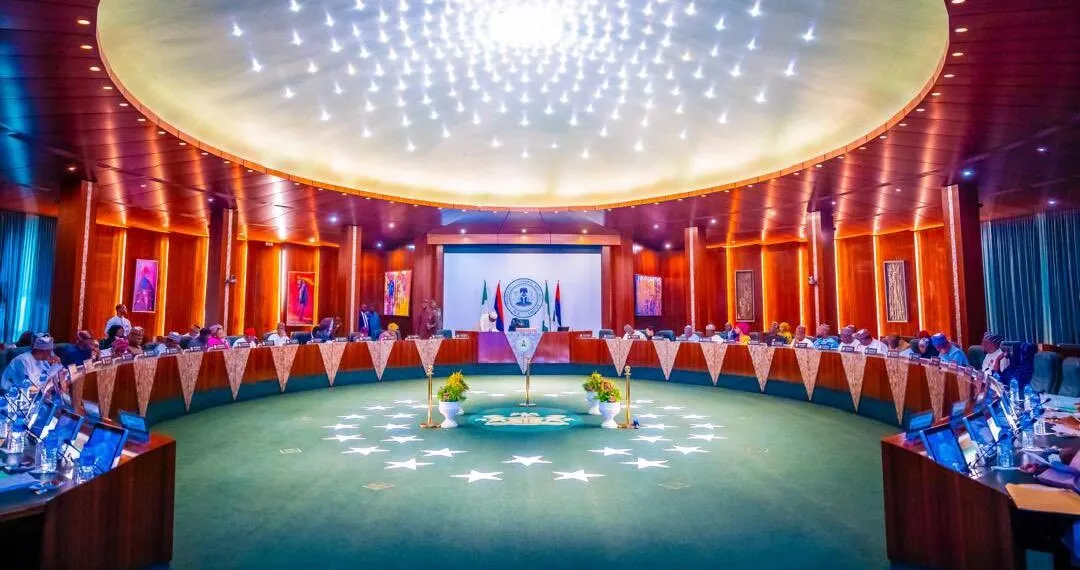The Federal Government approved the 2025 budget proposal on Monday, following the Senate’s recent endorsement of the Medium-Term Expenditure Framework (MTEF) for 2025–2027 on November 22.
President Bola Tinubu is set to present the proposed ₦47.96 trillion budget to a joint session of the National Assembly on Wednesday. Initially scheduled for Tuesday, the presentation was postponed to allow for final adjustments by the executive. A senior official from the National Assembly confirmed this postponement, which was later corroborated by the Minister of State for Agriculture, Sabi Abdullahi. Speaking to journalists, Abdullahi explained that the delay was necessary for the executive to finalize minor adjustments.
Earlier, Senate President Godswill Akpabio had announced during a plenary session that the budget presentation would take place in the House of Representatives chamber today. He also noted that the session would commence at 10:30 a.m. to enable senators to assemble in the Red Chamber before proceeding to the House chamber.
The 2025 budget aligns with fiscal strategies outlined in the approved MTEF, which sets key economic parameters. These include an oil price benchmark of $75 per barrel, an oil production target of 2.06 million barrels per day, an exchange rate of ₦1,400 to the dollar, and a projected GDP growth rate of 4.6%. Total revenue is projected at ₦34.82 trillion, with expenditures of ₦47.96 trillion. This represents a 36.8% increase from the 2024 budget, resulting in a ₦13.13 trillion deficit, equivalent to 3.89% of GDP.
Following a Federal Executive Council (FEC) meeting on Monday, the Minister of Budget and Economic Planning, Abubakar Bagudu, confirmed that President Tinubu had directed some adjustments to the budget proposal. Bagudu assured that despite delays, the government remains committed to maintaining the January-to-December budget cycle, as previously implemented.
Bagudu also highlighted the performance of the 2024 budget. As of September 30, revenue inflows stood at ₦14.55 trillion, representing 75% of the projected ₦25.8 trillion.
He attributed this strong performance to improvements in non-oil revenue and the deregulation of the petroleum sector. On the expenditure side, ₦21 trillion was forecasted for 2024, with ₦8.9 trillion allocated for debt servicing, ₦4.2 trillion for personnel costs and ₦5.86 trillion for capital projects. Of the capital expenditure released, 51% had been utilized by ministries, departments, and agencies (MDAs).
Regarding debt servicing, Bagudu assured that Nigeria has maintained a 100% performance, avoiding defaults. He emphasized that the administration, led by the President and the Coordinating Minister of the Economy, is committed to meeting financial obligations without exceeding legal borrowing limits.
Bagudu concluded by reaffirming the government’s dedication to fiscal responsibility and economic growth, with a focus on ensuring a seamless transition into the 2025 fiscal year.

